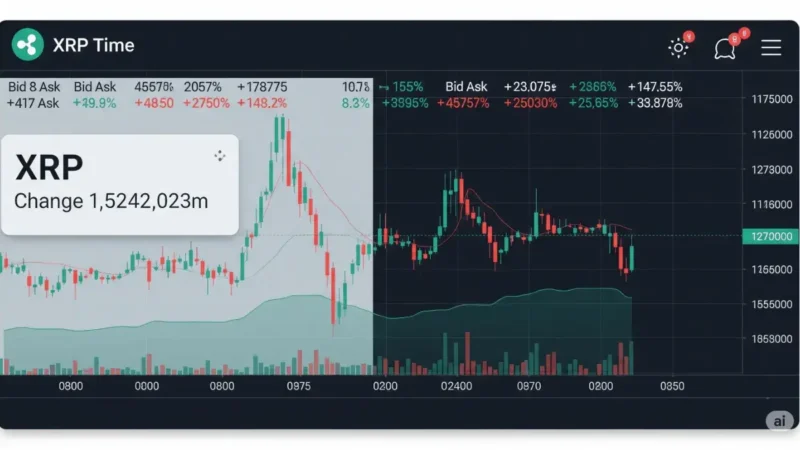Wall Street wants to get into crypto – will that still work or has the train left?

Wall Street has moved away from viewing Bitcoin as a hopefully passing fad, spending billions of dollars and hiring hundreds of experts to gain a foothold in the crypto world as it soars. Some companies are setting up crypto and blockchain divisions, investing in crypto startups, again creating trading platforms for their customers, but isn’t it all too late?
It wasn’t that long ago that Wall Street scoffed at cryptocurrencies. Jamie Dimon, CEO of America’s largest bank, called Bitcoin a scam, Warren Buffett called it rat poison, and many others used worse terms. But now they all want a piece of the Bitcoin pie; after all, they’ve lost some of their best talent to crypto and blockchain startups.
Back when Wall Street was calling bitcoin a bubble that would soon disappear, it seemed like corporate leaders genuinely distrusted cryptocurrencies. However, in recent years it has become clear that they were more likely to want to take down any competition that was looming in order to protect their own business.
After all, why would JPMorgan want the rise of Bitcoin when it could potentially mean less revenue from its banking services as people turn to alternative financial channels? Why would Oracle want Ethereum to succeed when its promise is decentralized applications? And Citi Group wouldn’t want BlockFi and Celsius Network to be the next big thing when they’re offering their customers nearly fifty times more interest.
Many have once again hung their flags after the wind – a basic principle of high finance – and are now trying to find Bitcoin beautiful. It didn’t take Jamie Dimon long to admit that calling Bitcoin a scam was wrong. His bank JPMorgan now consistently touts Bitcoin as the best hedge against inflation and has made very ambitious predictions for the future price of the top cryptocurrency.
Goldman Sachs has also been dealing with cryptocurrencies for a few months and is now offering to trade them. As CNF recently reported, CEO David Solomon was in the Caribbean in March courting Sam Bankman-Fried, head of crypto exchange FTX, noting how well positioned his bank is to provide banking services to the exchange and even the crypto market -Making work together.
Too little and too late for Wall Street?
Will the banks make up all the ground they lost as cryptocurrencies took off? That depends on who you ask. For some crypto experts like Michael Moro, banks and other established Wall Street players have already lost. Moro, CEO of Genesis, a crypto brokerage firm, told Bloomberg:
“The banks will always try to catch up. Cryptocurrencies will develop much faster than banks can. Every bank in the world has some kind of crypto and blockchain working group.”
For banks, entering the crypto economy is not just a question of injecting money into the industry. American banks are tightly regulated by a range of regulators, from the Comptroller of the Currency to the Federal Reserve Bank, and a host of other agencies.
Acknowledging the influence of regulators lately, David Solomon says the bank is slowly moving into the crypto space as it is being guided by regulators. He added that the guidelines are very restrictive for banks looking to enter the crypto economy.
Despite this, banks and other financial institutions are making moves toward bitcoin. Jefferies Financial Group, a Wall Street investment bank, is one of those aggressively entering cryptocurrencies. It recently announced that it is expanding its crypto footprint to complement the leveraged finance, equity capital markets and convertible debt services it already offers.
BlackRock, the world’s largest wealth manager with over $10 trillion in assets — more than the gross domestic product of any country except China and the U.S. — was a lead investor in Circle’s recent $400 million seed funding round. Paradigm, the venture capital firm founded by Fred Ehrsam, co-founder of crypto exchange Coinbase, is investing in Citadel Securities, a Wall Street market maker.
Immortal Enemies
Wall Street is now trying to get its fair share of the pie, but it may be too late. A look at more recent, or rather very recent, history is helpful: First of all, Bitcoin was invented by Satoshi Nakamoto at the height of the so-called real estate crisis in 2008. It had been lured in by Wall Street with properties that were valued way too high and some of which would have been too expensive to demolish. Although bitcoin inventor Nakamoto never said that bitcoin was meant to be a competitor to the big banks, bitcoin’s structure, which emphasizes peer-to-peer transactions and eliminates the intermediaries — i.e., the banks — suggests that he did just that intended.
Others have followed Nakamoto’s basic idea, including Ethereum, which bypasses the central server companies – so-called clouds like Amazon. DeFi built on that, allowing users to lend money to each other, naturally leaving out the banks as well.
Wall Street will almost certainly try to get into all of these sectors, including DeFi and NFTs. Several global players are already working with NFTs. However, one of the characteristics of the crypto industry is that it is evolving very quickly, and as banks are constrained by their own inertia and by regulations, they may not be able to keep up with the pace, making them the perennial laggards in the industry would.
Genesis boss Moro put it in a nutshell:
“It’s possible for banks to want to launch something and then find that by the time they’re ready to launch, their cryptocurrency customers’ interests lie elsewhere.”



